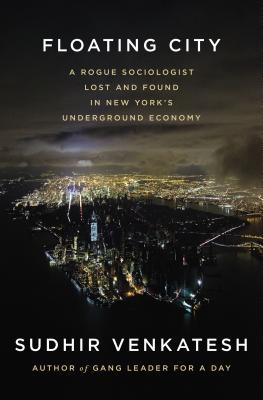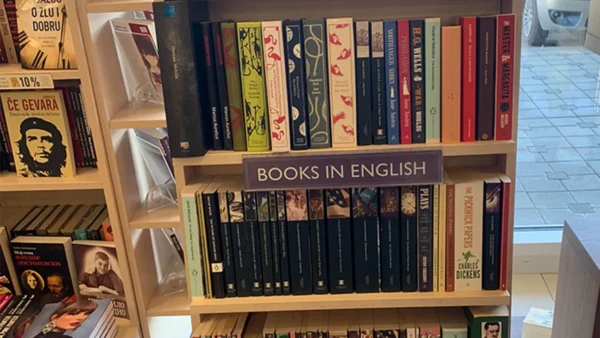 What a difference a title makes, or even a subtitle. The version I read, the US edition which I received as a review copy, had the subtitle “A Rogue Sociologist Lost and Found in New York’s Underground Economy.”
What a difference a title makes, or even a subtitle. The version I read, the US edition which I received as a review copy, had the subtitle “A Rogue Sociologist Lost and Found in New York’s Underground Economy.”
This irritated me throughout the book, because I kept expecting Sudhir Venkatesh to “go rogue”, and he never did. He perhaps got a bit more emotionally involved with his subjects than sociologists are supposed to, but he was always scrupulous about not affecting the outcomes, about being ethical and honest and reading people their rights before starting any interview. He was just a sociologist doing his research. It seemed to me that the “rogue” tag had been stuck on to make the book seem more enticing.
Fortunately the UK edition has the less catchy but much more accurate subtitle “Hustlers, Strivers, Dealers, Call Girls and Other Lives in Illicit New York”. So we’ll leave the “rogue” issue alone.
What this book does very well is to get under the skin of New York City and explore the lives of people in the underworld. It’s written more as a memoir than as a work of sociology, so there are plenty of real-life stories and no tedious footnotes. I enjoyed the connections Venkatesh makes between the drug dealers and porn-shop clerks he studies and the “above-ground” economy.
These people were seekers. As much as the peppiest young entrepreneur in any Silicon Valley garage, they dreamed of changing their worlds. And in their daily lives as ordinary citizens and consumers, their illegitimate earnings helped many legitimate businesses stay afloat. In that sense, they were pillars of the community.
He shows the impromptu communities that spring up within these criminal and marginal worlds, the unexpected ties that bind people to each other, even if only for a time. The floating city refers to the fluidity of many people’s lives in a global city like New York, the lack of ties to particular neighbourhoods or other traditional social structures, the formation of more temporary communities. Mortimer, an ageing john, is touchingly cared for by local prostitutes as he recovers from a stroke. Manjun’s porn store becomes a safe haven for sex workers. People come and go, and the communities spring up in unlikely places before dying or moving on. It’s an interesting phenomenon to watch.
One fault in the book, though, is the way that Venkatesh makes himself the main character in the book, and then does nothing much of any interest. It’s fine to get some insight into his research techniques and his ethical dilemmas, but it goes way too far. There are too many passages where he’s worrying about where he’s going to get his next interview from, or panicking over his project’s lack of direction, and it’s just not very compelling stuff. Here’s one example among many:
Whatever hopes I might have had about documenting the collision of worlds began to blow away in that cold autumn wind. I’d have to find another way to chart the connections the global city forged among disparate social types.
He’s clearly trying to make himself into a character with something important at stake, but it doesn’t really work. He also mentions a few times that his marriage is breaking apart, but tells us almost nothing about why or how or even who his wife is – we just get generalisations about being young when they got married and now having changing priorities. It feels as if the author is trying to make himself into an interesting character, but doesn’t want to reveal too much of his personal life.
The overall effect of this is to make the book feel a bit flat. There’s plenty of drama in the lives of the people Venkatesh is studying, and if he’d just related their stories, it would have worked better. Instead we spend a lot of time inside the head of an anxious sociologist, and it’s not a good place to be.
So this book is recommended for its insights into the New York City underworld, but marred by its choice of focus.




There are 6 comments
This sounded very interesting at first but then seems to have ended in some form of navel gazing. I agree on the subtitle. Maybe it was an awkward way to say this isn’t a scientific book as such?
Yes, I think that’s exactly what it was, Caroline. I think the subtitle and the navel-gazing both stem from the same impulse – to try and give the book a broader appeal. If he’d carried it further, it could have been really interesting, but as it was, it felt a bit flat. Still some really interesting observations and stories in the book, though.
This is the most balanced review of Venkatesh’s Floating City that I have read. Blackman hits it right on in terms of the strengths and weaknesses of the book. I totally agree that Venkatesh is the most boring character in the book. It’s almost like he was trying to evoke Mcinerney’s Bright Lights, Big City angst but failed miserably.
Thanks, Siobhan! It’s funny you should mention that, because Bright Lights, Big City did come to mind for me too. I think the book could have worked really well if he’d really “gone rogue”, got mixed up in the lives of his subjects, and truly had things at stake. But he didn’t do that, for understandable reasons, so for me it would have worked better if he’d stepped out of the way and allowed the focus of the book to shift to the people he studied, whose stories were fascinating. Thanks for the comment!
I agree 100%. I found this book extremely frustrating. It couldn’t decide whether it wanted to be bad crime fiction or a poorly written academic piece. I don’t understand the overwhelmingly positive reviews. He spends whole passages on monologues about what he’s going to do next, and I just wish he’d get to the reason why I bought the book. I’m interested in the underground economy, not his childhood.
Hi Adam
Yes, I remember those monologues! It certainly did feel as if the book was neither one thing nor the other, which is a shame because he spent years researching the underground economy and had some interesting things to say about it when he got around to it!